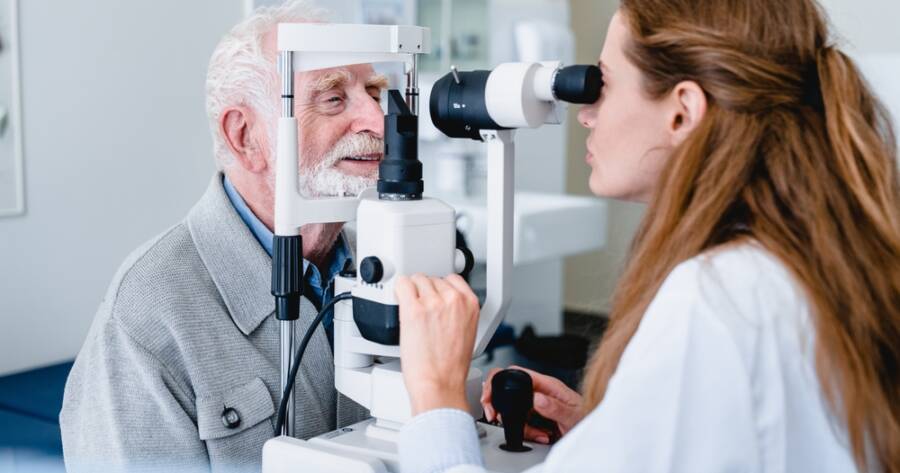Certain medications can have unexpected effects on eye health, with some linked to an increased risk of macular degeneration—a serious condition that impacts central vision. Understanding how these drugs might influence eye health is crucial, especially for those already at risk. Fortunately, if you’re concerned about medication-related eye changes, there are treatment options available to help protect and preserve vision. Staying informed about these risks can help safeguard your eyesight and maintain long-term eye health.
What Is Macular Degeneration and Its Types?
Macular degeneration is an eye condition that primarily affects the macula, the part of the retina responsible for sharp, central vision. It is one of the leading causes of vision loss, particularly in older adults, and can severely impact daily activities like reading, recognizing faces, and driving. There are two main types of macular degeneration: dry (atrophic) and wet (neovascular).
The dry form is more common and involves the gradual thinning of the macula, often progressing slowly but potentially leading to geographic atrophy, an advanced form of the disease. The wet form, although less common, is more severe and involves abnormal blood vessels growing under the retina, which can leak fluids or blood, causing rapid vision loss. Understanding these types is essential for identifying appropriate treatment options and managing the condition effectively.
Medications That May Increase the Risk of Macular Degeneration
Certain medications are associated with an increased risk of developing or worsening macular degeneration, and it’s essential to discuss these risks with a healthcare provider. Nonsteroidal anti-inflammatory drugs (NSAIDs), commonly used to treat pain and inflammation, may be linked to higher macular degeneration risk with long-term use. Some blood pressure medications, particularly those affecting blood vessel regulation, are also under study for their potential impact on eye health, as they can influence blood flow to the retina.
Additionally, ocular antihypertensive eye drops, often used in the treatment of glaucoma, may increase the risk of macular degeneration in susceptible individuals due to changes they cause in intraocular pressure. Being aware of these risks allows patients and healthcare providers to consider alternative medications or implement preventive measures when possible.
Possible Treatment Options for Macular Degeneration
While there is no cure for macular degeneration, various treatments can help slow its progression and manage symptoms. For early-stage dry macular degeneration, lifestyle changes such as a nutrient-rich diet and regular eye protection are often recommended. Antioxidant supplements, including vitamins C and E, zinc, and lutein, may support eye health. For wet macular degeneration, anti-VEGF injections like Avastin, Lucentis, and Eylea help reduce abnormal blood vessel growth.
For advanced dry macular degeneration with geographic atrophy, Syfovre (pegcetacoplan) offers a new option by specifically targeting this advanced stage. Syfovre works by slowing the progression of geographic atrophy, helping preserve vision. Consulting an ophthalmologist will help tailor treatment to individual needs and conditions.
The Role of Lifestyle Changes in Managing Macular Degeneration
Alongside medical treatments, lifestyle adjustments can significantly impact the progression of macular degeneration. Adopting a diet rich in antioxidants—such as leafy greens, colorful vegetables, fish high in omega-3 fatty acids, and nuts—can support eye health. Protecting eyes from UV rays by wearing sunglasses and avoiding smoking are also crucial steps in managing macular degeneration.
Regular exercise helps improve blood circulation, supporting oxygen and nutrient delivery to the eyes. Monitoring eye health through routine check-ups enables early detection of changes, allowing timely intervention. These lifestyle changes, while simple, can complement medical treatments, potentially slowing the disease’s progression and preserving vision for as long as possible.
Learn More About Macular Degeneration
Macular degeneration is a serious eye condition, but understanding its causes and available treatments can make a meaningful difference in preserving vision. If certain medications increase your risk, discussing alternatives with your healthcare provider is a proactive step. Additionally, exploring treatment options—whether lifestyle adjustments, medications like Syfovre for geographic atrophy, or advanced therapies—can help manage the condition effectively. Staying informed and working with your healthcare team empowers you to protect your eye health for years to come.
